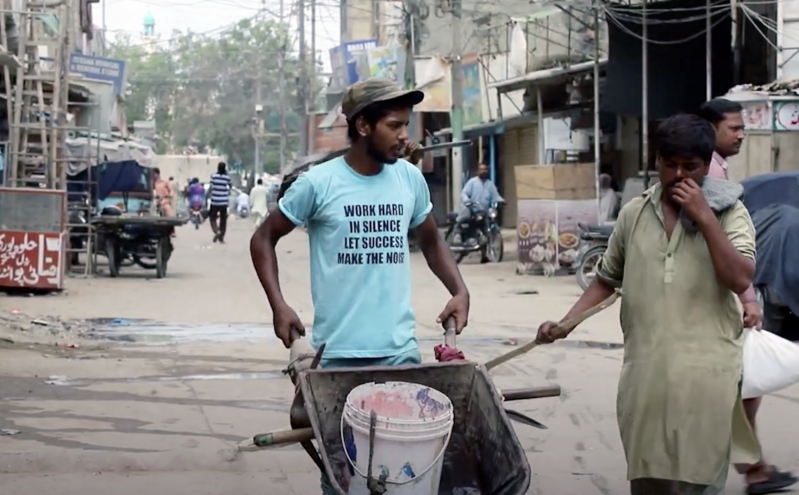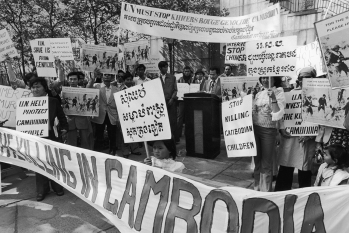
A provincial government in Pakistan is set to launch a scheme for religious minorities on Dec. 20 under which a tri-monthly stipend will be given to poor families. However, Christian leaders have urged the government to instead focus on creating jobs for their marginalized community members to enable them to earn a respectable livelihood.
An advertisement on the official website of the Human Rights and Minorities Affairs Department of the Punjab provincial government states that 50,000 eligible families will receive 10,500 Pakistani Rupees [36 USD] every three months. Online registration for the ‘Minority Card’ began on Dec. 5 and will continue till Jan 5, 2025.
“Applicants must score 45 or less out of 100 on the Poverty Means Test (PMT),” according to the advertisement. The PMT calculates poverty level based on various socio-economic indicators, such as income, family size, and living conditions. A score of 45 or lower highlights severe poverty.
“This quarterly relief announced by the Punjab government is not a solution to the economic challenges facing poor Christians living in the province. A majority of our people are engaged in menial jobs such as sanitary workers and farm labourers. How is a paltry amount of 10,500 Pakistani Rupees after every three months going to bring any difference to their lives?” said Adeel Rehmat, chief officer of Pakistan’s leading faith-based humanitarian organization, Pak Mission Society.
According to the 2023 national census, Christians make up 1.37 percent of Pakistan's population of 241 million. Most Pakistani Christians live in Punjab province and a large number of them are barely able to earn a decent livelihood for their children.
Rehmat said that rather than giving cash handouts to a specific number of poor minorities, the government should spend this money on creating better employment opportunities or educational scholarships to help alleviate the social standing of the marginalized groups.
“If the Punjab government is really interested in uplifting religious minorities it can also start a microfinance scheme to help these people in setting up small businesses. Our people need to be empowered economically to raise their standard of living otherwise there will be no change in their situation,” he told Christian Daily International.
Founded in 2004, the Pak Mission Society has been actively working to help Christians struggling to climb the poverty line, said Rehmat.
“We have helped many Christians in starting small businesses with cash grants and today they are making a respectable living. We also organize farming trainings and provide tools and equipment to Christians living in rural areas to enable them to become self-reliant,” he said. He added that his organization launched the ‘Pak Business Program’ in 2020 with a core objective to build a movement of faith-driven entrepreneurs and businesses to invest resources in ministry and mission work in Pakistan.
The government must think on these lines if it’s really committed to seeing an improvement in the lives of its poor minorities, he emphasized.
Reverend Reuben Qamar, moderator of the Presbyterian Church of Pakistan, said that he believed the minority card scheme was a political move aimed at promoting the ruling party’s image in the eyes of Christians.
“We don’t see any serious attempt to uplift Christians socially and economically. Our people deserve jobs, not cash handouts. Moreover, the government has announced this support for only 50,000 families, leaving out thousands of deserving others,” he said, endorsing Rehmat’s suggestion of giving low-interest business loans to minorities and investing in their skill development for sustainable growth.
“Such support programs by the government only encourage people to beg and stand in queues for relief whereas they should be motivated to earn a respectable livelihood,” he stressed.

Ejaz Augustine, a Christian lawmaker in the Punjab Assembly, admitted that the government’s scheme was unlikely to make any major difference in the lives of the poorest of the poor Christians. However, he said that getting some support was better than having nothing at all.
“Though the scope of the scheme is limited to 50,000 families only, the cash support will help such people in meeting at least some household expenses,” he told Christian Daily International.
Augustine said that he and four other Christian lawmakers in the Punjab Assembly were making efforts to push the provincial government to introduce schemes that would create better opportunities for Christians.
“Christians are the largest minority group in Punjab but also the weakest compared to Sikhs and Hindus and other communities. The economic factor is a major hindrance in the progress of the Christian community and we all need to work together to pull our people out of this crisis,” he said.
According to a 2023 study conducted by Lahore-based research organization, Center for Social Justice, poverty is rampant among minority communities in Punjab with a majority of families earning less than 30,000 Pakistani Rupees [108 USD] per month. This income falls below the federal and provincial minimum wage of 37,000 Pakistani rupees [133 USD], introduced in July this year.





